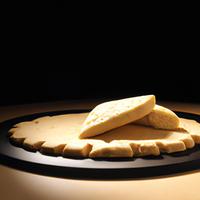
1 serving (57 grams) contains 170 calories, 3.0 grams of protein, 8.0 grams of fat, and 20.0 grams of carbohydrates.

Log this food in SnapCalorie

Nutrition Information
Calories |
708.3 | ||
|---|---|---|---|
% Daily Value* |
|||
| Total Fat | 33.3 g | 42% | |
| Saturated Fat | 12.5 g | 62% | |
| Polyunsaturated Fat | 0 g | ||
| Cholesterol | 0 mg | 0% | |
| Sodium | 1875 mg | 81% | |
| Total Carbohydrates | 83.3 g | 30% | |
| Dietary Fiber | 4.2 g | 15% | |
| Sugars | 8.3 g | ||
| protein | 12.5 g | 25% | |
| Vitamin D | 0 mcg | 0% | |
| Calcium | 83.3 mg | 6% | |
| Iron | 5.0 mg | 27% | |
| Potassium | 166.7 mg | 3% | |
* Percent Daily Values are based on a 2,000 calorie diet. Your daily values may be higher or lower depending on your calorie needs.
Food Attributes
Source of Calories
About Biscuit dough
Biscuit dough is a versatile mixture typically made from flour, baking powder, salt, butter or shortening, and milk or water. This foundational dough originates from Southern U.S. cuisine, where fluffy, golden biscuits are a staple comfort food. It can be crafted for both sweet and savory applications. The butter or shortening provides richness, while baking powder ensures a light, airy texture. While biscuits made from this dough are beloved for their flavor and texture, they can be high in calories and saturated fats due to the use of butter and refined flour. Whole-grain flour or lower-fat substitutes can make biscuit dough healthier, adding fiber and reducing fat content. Enjoyed in moderation, biscuit dough is a satisfying base for meals or snacks, pairing well with a variety of spreads, toppings, or gravies.



